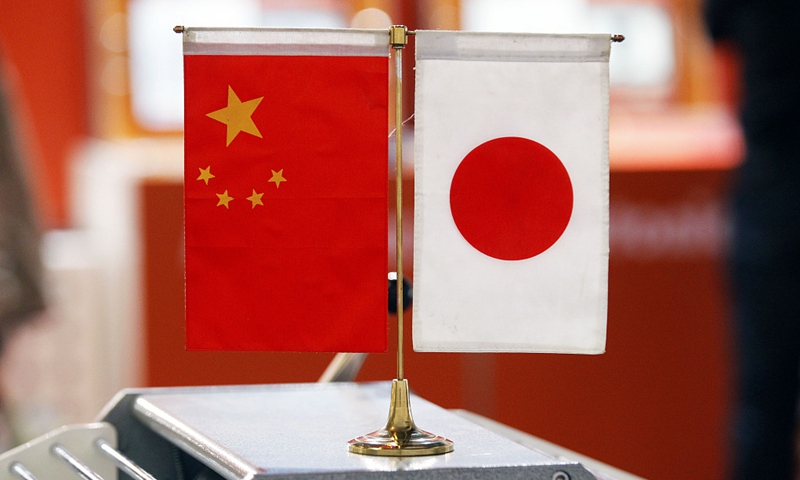
China-Japan Photo: VCG
As this year marks the 50th anniversary of the establishment of China-Japan diplomatic ties, officials, scholars and business representatives said they attach high importance to bilateral economic cooperation, calling it a "ballast stone" and "stabilizer" for their relationship in the past 50 years.
But they also urged Japan to be fully aware of the risks of the US factor in pressuring China-Japan relations.
Officials from China and Japan acknowledged the two countries' achievements of cooperation in the past 50 years and looked ahead at how the two sides should push bilateral cooperation to a new level, according to speeches delivered at a recent symposium marking normalization of the ties.
During the event, Chinese Foreign Minister Wang Yi called the two countries' move to "break the ice" in relationship 50 years ago as a move with "extraordinary strategic vision and political courage", listing the two sides' achievements of cooperation such as the four political documents, a series of important consensuses, as well as "practical cooperation" in various fields.
One integral part of China-Japan cooperation is in the economic and trade sector, which experts called the "ballast stone" of China-Japan relations.
Japanese Foreign Minister Yoshimasa Hayashi said at the symposium that the value of bilateral trade surged by about 120 times since the normalization of their relations, according to Chinese news portal cyol.com.
Chen Zilei, director of the Research Center for Japanese Economics at the Shanghai University of International Business and Economics, told the Global Times Japanese businesses had always adopted a cooperative attitude toward China, even at times when bilateral ties soured.
"China-Japan economic cooperation benefits China's economic growth, it is also conducive for Japan's economic transition. This is something that has been proved in history," Chen said. The two economies are largely complementary, he added.
According to Chinese customs, bilateral trade rose 17.1 percent on a yearly basis to $371 billion in 2021, hitting a new high. China is now Japan's biggest trade partner, while Japan is China's fourth-largest trade partner.
Epson China, a Japan-based company, said in a statement it sent to the Global Times on Wednesday that the company has been committed to meeting Chinese customers' needs. The company said it will continue to deeply cultivate the Chinese market.
Some experts said it is of importance for the two neighbors to always maintain proper direction of bilateral relations, which have recently shown rising volatility amid a series of geopolitical uncertainties, including some Japanese politicians' erroneous remarks about China.
Experts urged the Japanese government not to set walls to impede China-Japan economic cooperation, and said that it should remove barriers for such interaction.
"China-Japan relations have experienced ups and downs, mainly due to interference from the countries outside the region. China and Japan are neighbors, and economic and trade ties are an important bond to maintain sound political relations," Bao Jianyun, director of the Center for International Political Economy Studies at Renmin University of China, told the Global Times on Wednesday.
According to Bao, the biggest obstacle to the development of China-Japan trade is external interference from the US.
"Japan should be fully aware of the risks and perils posed by the US hegemony," Bao noted.
The US has been trying to rope in Japan to form an exclusive semiconductor alliance that bypasses China's semiconductor supply chain in a bid to contain China's technology rise.
Observers stressed that there's actually a lot of room for China and Japan to further expand cooperation, particularly under the framework of the Regional Comprehensive Economic Partnership (RCEP) free trade pact.
According to Chen, the RCEP will push the two countries to open their markets and remove trade barriers, and also create room for China-Japan cooperation in third-party markets.
The two sides could boost cooperation in the services industry, Chen said. For example, Japan's logistics companies could participate in business related to the China-Europe Railway Express or the Belt and Road Initiative.
Foreign Minister Wang Yi said that as the two countries' bilateral ties embark on the journey of the next 50 years, the two sides need to renew their original aspirations when establishing diplomatic relations, take lessons from history, and work to promote the sound and steady development of bilateral relations along the right track.
A recent opinion poll conducted by a Chinese media outlet found that 47 percent of the respondents said that Japan had better deepen relations with China.




